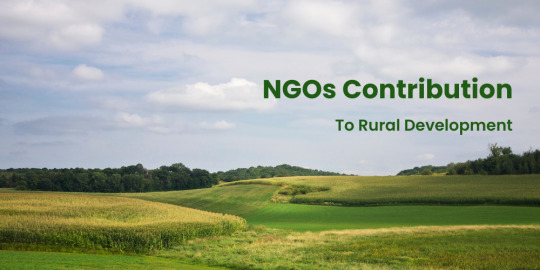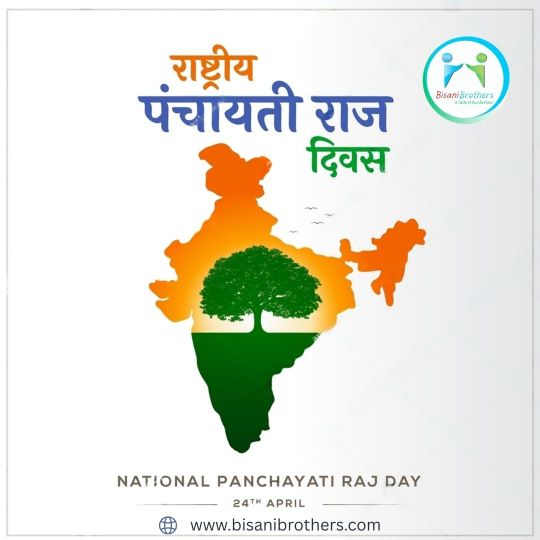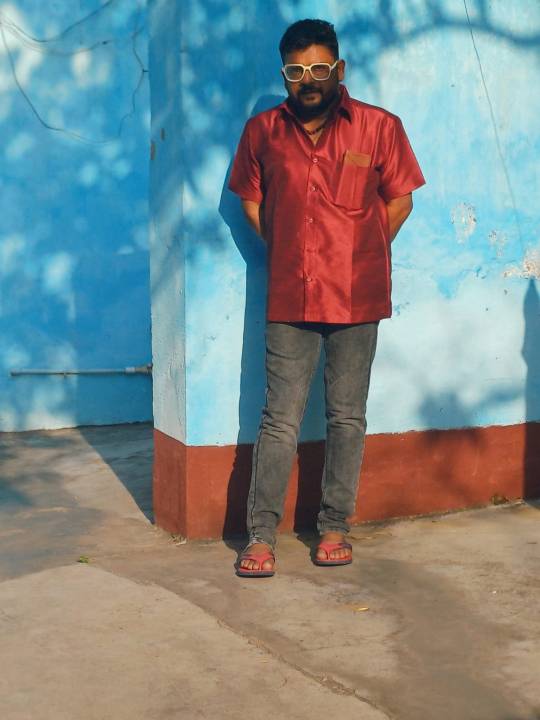#RuralEmpowerment
Explore tagged Tumblr posts
Text

How NGOs Drive Positive Change in Rural India?
Rural communities face unique challenges, and NGOs have emerged as key changemakers in tackling them. We’ve written a blog “How NGOs Drive Positive Change in Rural India” that highlights how a dedicated rural development NGO works to improve education, health, livelihood, and more from the ground level. If you're curious about the real impact these organizations create, read the full blog!
#RuralDevelopment#NGOsInIndia#SocialImpact#RuralEmpowerment#GrassrootsChange#EducationForAll#HealthcareAccess#LivelihoodPrograms#NGOWorkIndia#RuralTransformation
1 note
·
View note
Text

🎉 Shakti Parv Mahotsav 2025 – A Grand Celebration of Promises Delivered! 🎉 We said it. We did it. ✅ Congratulations to 555 lucky winners who trusted Shaktiman – and became a part of this historic moment! 🏆🚜✨ From cars to cutting-edge agri-equipment, home appliances to smart gadgets – we’ve celebrated YOU, our farmers and partners, in a truly royal way! 💪👨🌾 - Prizes ( 5Car, 25 Bike, 100 LED TV, 120 Refrigerator, 165 Washing Machine & 140 Mobile Phone) 💥 This is just the beginning… Stay connected for more exciting updates, offers, and events! 👇 Drop a 🙌 to celebrate with us!
#ShaktimanIndia#ShaktiParvMahotsav#LuckyDrawWinners#AgricultureCelebration#555Winners#PowerToFarmers#IndianAgriculture#FarmersFirst#ShaktimanImplements#AgritechIndia#CelebratingSuccess#TrustShaktiman#FarmersOfIndia#RuralEmpowerment#SmartFarmingSolutions#SwadeshiPower#ShaktimanChlegaMunafaBadega#Hargharhargaonshaktiman
1 note
·
View note
Text
William Savary: A Visionary for Rural Development in Haiti

In this modernity, transformative leadership is becoming popular among individuals. William Savary is a prime example of transformative leadership in Haiti. He is dedicated to improving the quality of life in rural societies and possesses various financial skills. He was born in Haiti but studied in the United States, France, and Haiti. He has acquired a fine understanding of sustainable development as a result of the diverse nature of his studies. The purpose of his work is to integrate traditional concepts with innovative approaches to ensure the preservation of cultural heritage and support economic growth. In this article, we’ll discuss his vision for rural development in Haiti
Singular Vision Driven by a Numerous Background
Savary's scholarly journey across continents gave him a thorough knowledge of global financial systems and development perspectives. His objective was to generate wealth in rural Haiti, and his extensive educational heritage served as the foundation upon which he constructed it. Savary identified the problems of these communities, including poor infrastructure and a lack of development. As a result, he devised a way of merging traditional approaches to community development with new ones.
Savary's distinction lies not only in his education but also in his ability to apply and adapt his knowledge in diverse settings. Savary has demonstrated a remarkable ability to connect with individuals from every background, from the boardrooms of Wall Street to the councils of Haitian villages. His mission is not just academic; it is founded on personal commitment, firsthand observation, and lived experience to make a significant impact in the most desperate of circumstances.
Innovative Leadership in Rural Development
A great reverence for Haiti's complex cultural array is the foundation of Savary's approach. He thinks that sustainable development must be deeply ingrained in the values and traditions of the community. Savary guarantees that development initiatives are culturally relevant and effective by collaborating with local leaders and utilizing customary authority. This approach promotes community ownership, guaranteeing that initiatives are upheld and cherished by their beneficiaries.
One of Savary's most notable strategies is the integration of conventional agricultural disciplines with contemporary methodologies. He boosts output while also protecting the natural balance and the cultural significance of farms in Haiti. These programs not only improve food security, but they also make work available. This holds people from leaving the country for the city and does good things for local businesses.
Savary's leadership also encourages youngsters and women to take part in country development projects. He believes that giving these groups more power makes communities stronger and more able to handle problems on their own. Training programs for farming groups and new businesses are very important for getting people to stay involved in development efforts and come up with new ideas in their communities. Savary guarantees that the advantages of rural development are distributed fairly and extensively by emphasizing inclusivity.
Bridging Finance and Community Empowerment
Savary's extensive experience in investment banking, which included his role as executive vice president at Abraham Securities Corporation, has provided him with a deep understanding of financial management and capital markets. He employs this knowledge to develop financial models that entice investment in rural development initiatives. He secures the backing of both domestic and international investors by portraying these initiatives as profitable and viable enterprises.
Savary also emphasizes the significance of financial education in rural communities. Educating residents on budgeting, savings, and investment through seminars and training sessions, he enables them to assume responsibility for their financial destinies. The durability and success of development initiatives are guaranteed by this dual approach, which involves the acquisition of external funding and the development of internal capacity.
He also wants local credit unions and lending institutions to be set up in rural areas. Small farms, artists, and business owners who might not be able to use traditional banking services can get money through these. Savary is setting the stage for true economic freedom and self-sufficiency by giving people in the area the tools they need to handle their own money and spend in their communities.
Championing Ethical and Sustainable Practices
Savary always follows the rules of sustainability and moral leadership in everything he does. He supports open government systems that make sure resources are distributed fairly and effectively. His work also includes reforestation, land protection, and long-term water management plans, with a focus on protecting the environment.
Agroforestry projects, which plant trees along with farms to stop soil loss and bring back wildlife, have his backing. This new method helps fix damage to the environment and raises long-term crop returns. In addition, Savary works to set up community-run water systems that make sure everyone has access to clean water, which is important for both farms and public health.
Savary makes sure that Haiti's natural heritage isn't lost in the name of progress by combining environmental protection with development goals. This all-around plan protects resources for future generations while also meeting the needs of the present.
A Legacy of Progress and Empowerment
William Savary's work surpasses conventional development paradigms. By mixing financial knowledge with cultural awareness, he has made a model that works and takes into account Haiti's unique situation. His projects are proof of how well joint, inclusive growth can work.
Savary makes sure that his projects are well resourced and can last for a long time by working with local governments, foreign organizations, and community groups. He also puts a lot of strong emphasis on monitoring and assessing to make sure that things are always getting better. His development programs are not static—they evolve based on feedback and changing community needs.
Haiti has continued to encounter the uphill battle of the 21st century with the help of leaders such as Savary, who lead the way. He has a dream of establishing a solid community, making individuals more resilient, and forging a future that is illuminated by both new concepts and aged traditions.
Conclusion: William Savary’s Lasting Impact
It is clear that visionary leadership, which is based on both knowledge and humanity, like that shown by William Savary, has the power to change the course of disadvantaged areas. Because of his unique mix of global financial knowledge and a deep respect for Haiti's cultural and country roots, his creative development projects are long-lasting, include everyone, and give people power. Other growing areas can learn from Savary's plan for rural progress, which focuses on long-term economic stability, moral behavior, and involvement of the local community.
As a leader, he listens, understands, and moves with purpose in a world where progress often ignores the opinions of those on the outside. Beyond building infrastructure and improving farming, his main goal is to bring back respect, hope, and opportunities to the people in the middle of Haiti. As long as his purpose lasts, Savary will continue to help change the future of rural Haiti one community at a time.
0 notes
Text

🌾 "Gramin Bharat ki shaan, Panchayati Raj ka samman!" 🇮🇳 Today, on National Panchayati Raj Diwas, we honor the spirit of decentralized democracy and salute the backbone of rural governance – our Panchayats!
Let’s empower the roots of India for a stronger tomorrow. 💪🏽 #PanchayatiRaj #GraminVikas #India2025 #VillagePower
🗓️ Date: 24th April 2025 🏡 “Gaon ki taraqqi, desh ki pragati!”
#PanchayatiRajDiwas#NationalPanchayatiRajDay#GraminBharat#VillageDevelopment#RuralIndia#GramPanchayat#LocalGovernance#PanchayatiRaj2025#IndianDemocracy#IndiaAtRoot#EmpoweringVillages#SocialChange#BharatKiJaanGaon#RuralEmpowerment
0 notes
Text
The Future of Sustainability: Top Trends to Watch in 2025
Explore the top sustainability trends shaping 2025. Learn how these innovations are driving environmental change and paving the way for a sustainable future. Read more here.
0 notes
Text

Agricultural Innovation: Beyond Traditional Farming
Mondal Agro Tech represents a revolutionary approach to agriculture. With two dairy farms hosting 100 cows and producing 2000 liters of milk daily, Mondal is redefining what it means to be an agricultural entrepreneur. But his vision extends far beyond milk production.
Integrating duck farming, goat farming, and innovative agricultural practices, he demonstrates a holistic approach to sustainable agriculture. Each initiative is carefully designed to maximize efficiency, support local communities, and create meaningful economic opportunities.
Agricultural Innovation Highlights:
Integrated farming approach
Sustainable livestock management
Economic innovation in agriculture
Community-centric agricultural model
0 notes
Text
Improving Income of Small Farmers and Livelihoods of Marginalised Communities
Agriculture remains the backbone of many rural economies, yet small farmers and marginalised communities often struggle to secure sustainable livelihoods. Economic instability, limited access to markets, and lack of resources create significant barriers to growth. Addressing these challenges requires a multi-faceted approach that enhances productivity, ensures fair market access, and promotes long-term resilience.

Enhancing Productivity Through Sustainable Practices
One of the key factors in improving income of small farmers is increasing agricultural productivity. Traditional farming methods, though deeply rooted in experience, often lack efficiency due to limited access to technology and sustainable farming practices. Encouraging farmers to adopt modern techniques, such as precision farming and integrated pest management, can lead to improved yields and reduced losses.
Additionally, soil health and water management are crucial. Techniques like crop rotation, organic fertilisation, and rainwater harvesting help maintain soil fertility and optimise water use, reducing dependence on external inputs. When farmers implement these methods effectively, they not only increase their yield but also lower production costs, leading to better financial stability.
Market Access and Value Addition
Access to fair and transparent markets is a significant challenge for small farmers. Many rely on intermediaries who often offer low prices, reducing their overall earnings. Strengthening direct market linkages through cooperatives and farmer organisations can empower producers by giving them better bargaining power and higher returns.
Another effective strategy is value addition. Processing raw agricultural produce into finished or semi-finished products increases its market value and shelf life. For example, converting fresh fruits into dried snacks or producing artisanal dairy products can enable farmers to earn more compared to selling raw goods. Developing local processing facilities also generates employment and stimulates the rural economy.
Financial Inclusion and Access to Credit
Limited access to affordable credit remains a key barrier to improving livelihoods of marginalised communities. Many small-scale farmers depend on informal credit sources, often at high interest rates, which can lead to financial distress. Expanding access to microfinance and cooperative lending schemes offers farmers a more reliable way to invest in their businesses.
Financial literacy is equally important. Providing training on budgeting, loan management, and investment planning can help farmers make informed financial decisions. Mobile banking and digital financial services further enhance accessibility, particularly in remote areas where traditional banking infrastructure is limited.
Strengthening Local Supply Chains
A resilient supply chain is essential for sustainable agricultural livelihoods. Strengthening local supply chains reduces dependency on volatile external markets and ensures that farmers receive fair prices. Encouraging the use of local inputs, such as seeds and organic fertilisers, fosters self-sufficiency and reduces costs.
Collaborative models, such as farmer cooperatives and community-supported agriculture (CSA), allow producers to collectively negotiate prices, share resources, and access better storage and transportation facilities. Such initiatives enhance the overall stability of small farming enterprises, making them more competitive.
Climate Resilience and Risk Management
Climate change presents significant risks to agriculture, particularly for small farmers who rely on traditional farming cycles. Unpredictable weather patterns, extreme temperatures, and natural disasters can severely impact yields. Developing climate-resilient agricultural practices is essential for long-term sustainability.
Promoting drought-resistant crop varieties, agroforestry, and diversified cropping systems helps farmers mitigate climate risks. Access to weather forecasting tools and early warning systems further supports risk management, enabling farmers to plan better and reduce losses. Additionally, insurance schemes tailored for small farmers can provide financial protection against crop failure and extreme weather events.
Skill Development and Knowledge Sharing
Capacity building is a crucial aspect of improving livelihoods of marginalised communities. Training in modern agricultural practices, entrepreneurship, and market dynamics equips farmers with the skills needed to enhance productivity and profitability. Peer learning through farmer field schools and knowledge-sharing platforms strengthens local expertise and fosters innovation.
Supporting rural education also plays a significant role. Encouraging young people to engage in agriculture through vocational training and mentorship programmes ensures the long-term sustainability of farming communities. A well-informed and skilled workforce contributes to increased efficiency and economic stability.
Policy Support and Institutional Frameworks
Government policies and institutional support significantly influence the economic well-being of small farmers. Ensuring fair trade practices, regulating market intermediaries, and investing in rural infrastructure such as roads and storage facilities create a more enabling environment for agricultural growth.
Land tenure security is another critical factor. Many small farmers operate on leased or informal land arrangements, making long-term investment difficult. Strengthening land rights and providing legal support helps farmers secure their livelihoods and plan for the future with greater confidence.
The Role of Organisations in Supporting Small Farmers
Several organisations work towards improving the income of small farmers and enhancing the livelihoods of marginalised communities. Fuzhio is one such initiative, focusing on sustainable agricultural solutions, market linkages, and community empowerment. Their efforts include providing training on eco-friendly farming methods, facilitating access to financial resources, and creating platforms for farmers to connect with potential buyers. By addressing key challenges at multiple levels, Fuzhio plays a vital role in promoting resilience and economic growth in rural areas. Learn more about their work at Fuzhio.
Conclusion
Improving the income of small farmers and supporting the livelihoods of marginalised communities requires a comprehensive approach that addresses productivity, market access, financial inclusion, and climate resilience. Strengthening local supply chains, investing in skill development, and ensuring supportive policies further contribute to long-term agricultural sustainability. Collaborative efforts from governments, financial institutions, and organisations like Fuzhio are essential in creating lasting economic stability for rural communities. By focusing on practical, scalable solutions, small farmers can achieve greater financial independence and resilience in an evolving agricultural landscape.
#FoodSecurity#EconomicGrowth#SustainableFarming#ClimateSmartAgriculture#RuralEmpowerment#FairTradeFarming#MarketAccess
0 notes
Text
The Role of Vocational Education To Empower Rural India

Growth and development mark the progress of a nation, but the challenges the education system in rural India has to combat often limit the exploration opportunities for students.
Please read: How To Vocational Training in Rural India Bridges Education and Employment?
0 notes
Text

The Story Behind Venkateswara Gosamrakshana Trust
India's rich cultural and spiritual heritage is deeply intertwined with the reverence of cows, which have held a sacred position in Hinduism for millennia. Protecting and nurturing these divine creatures is seen not only as a religious duty but also as a way to promote harmony with nature and support sustainable living. The Venkateswara Gosamrakshana Trust was established with this very mission in mind—to safeguard and preserve India’s indigenous cow breeds while promoting ethical and sustainable practices that benefit the environment, agriculture, and rural livelihoods.
The Genesis of the Trust
The Venkateswara Gosamrakshana Trust was founded in the temple town of Tirupati, a place revered for its spiritual significance and home to the famous Tirumala Venkateswara Temple. This sacred connection has shaped the core philosophy of the trust, which views cow protection as an act of devotion to Lord Venkateswara.
The trust’s journey began as a response to the alarming decline in the population of India’s native cow breeds, driven by the rise of industrial farming and exotic, high-yielding cattle. Recognizing the ecological and cultural importance of indigenous cows, a group of passionate devotees, environmentalists, and community leaders came together to form the trust. Their aim was clear: to protect the native breeds, promote sustainable agricultural practices, and uplift rural communities dependent on cattle for their livelihoods.
The Mission and Vision
At its core, the mission of the Venkateswara Gosamrakshana Trust is “Gau Seva”—service to cows. This encompasses not only the physical care of cows but also the spiritual and cultural preservation of India’s relationship with these gentle animals. The trust strives to protect and nurture indigenous breeds that have been historically adapted to Indian climates, ensuring that they continue to thrive in a rapidly changing world.
The trust's vision extends beyond just the protection of cows. It aims to foster a symbiotic relationship between cows, humans, and the environment. Through this, the trust envisions a future where traditional farming practices are rejuvenated, rural communities are empowered, and ecological balance is restored.
Key Initiatives of Venkateswara Gosamrakshana Trust
1. Goshalas for Indigenous Breeds
One of the primary functions of the trust is to maintain Goshalas (cow shelters) where native cow breeds are housed, cared for, and nurtured. These shelters are more than just places of refuge; they serve as centers for education and research on how to improve the breeding, health, and management of these cows. The trust currently shelters thousands of cows across several facilities, ensuring that even unproductive or aging cows receive lifelong care.
2. Conservation of Native Cow Breeds
India is home to more than 40 recognized native cow breeds, each uniquely adapted to local conditions. Unfortunately, many of these breeds are on the brink of extinction. The trust is committed to the conservation and revival of these endangered breeds, focusing on selective breeding programs that aim to preserve their genetic purity. Through partnerships with research institutions and veterinary experts, the trust has developed effective breeding practices that ensure the survival of these valuable breeds.
3. Organic Farming and Panchagavya Promotion
The trust actively promotes the use of cow-derived products in organic farming. Indigenous cow dung and urine are essential ingredients in Panchagavya, a traditional natural fertilizer used in organic farming. This holistic approach to farming is not only sustainable but also helps improve soil fertility, reduce dependency on chemical fertilizers, and restore ecological balance. The trust encourages farmers to adopt these practices, providing them with training and resources to switch to organic methods.
4. Empowering Rural Communities
A critical aspect of the trust’s work is its focus on rural development. By providing indigenous cows to farmers and training them in sustainable agriculture, the trust helps create livelihoods that are both ecologically and economically sustainable. Farmers are encouraged to engage in dairy farming, organic fertilizer production, and natural pest control methods, all of which are rooted in traditional practices. This empowerment creates a self-sustaining cycle of growth and support within rural communities, reducing poverty and promoting economic resilience.
5. Education and Awareness
Education is at the heart of the trust’s efforts. Through workshops, seminars, and outreach programs, the Venkateswara Gosamrakshana Trust spreads awareness about the importance of cow protection, organic farming, and environmental conservation. The trust works closely with schools, universities, and agricultural organizations to instill a sense of responsibility toward indigenous cows and their role in a sustainable future.
The Spiritual Significance of Cow Protection
For the Venkateswara Gosamrakshana Trust, cow protection is not just about environmental sustainability or agricultural productivity—it is a spiritual practice. Cows are revered as sacred beings in Hinduism, symbolizing non-violence, selflessness, and the nurturing aspect of nature. By protecting cows, devotees believe they are directly serving Lord Venkateswara and ensuring the prosperity of future generations.
The trust integrates this spiritual philosophy into its daily operations. Many of the goshalas have temples where regular prayers are offered to the cows, and festivals like Gopashtami are celebrated with devotion. The spiritual dimension of the trust’s work serves as a powerful motivator for both its members and the broader community to engage in cow protection.
Looking Toward the Future
As the Venkateswara Gosamrakshana Trust continues its work, it faces both opportunities and challenges. With growing awareness about the environmental and ethical issues surrounding industrial farming, there is renewed interest in the revival of indigenous breeds and traditional agricultural practices. However, the trust must also navigate the practical challenges of scaling up its initiatives, securing funding, and ensuring that its message reaches a wider audience.
The trust’s leadership is optimistic about the future. With a dedicated team of volunteers, supporters, and farmers, they are confident that their mission will not only preserve India’s native cow breeds but also foster a more sustainable, ethical, and harmonious relationship between humans and nature.
Conclusion
The story of the Venkateswara Gosamrakshana Trust is a testament to the power of faith, tradition, and community in driving meaningful change. By championing the cause of cow protection and sustainable agriculture, the trust is playing a crucial role in preserving India’s cultural heritage while addressing modern challenges like environmental degradation and rural poverty.
In a world that is increasingly disconnected from nature, the trust’s work serves as a reminder that sometimes, the answers to our most pressing problems lie in the wisdom of the past. Through its unwavering commitment to cow protection, the Venkateswara Gosamrakshana Trust is leading the way toward a more sustainable, compassionate, and balanced future.
#CowProtection#GauSeva#SustainableFarming#NativeCows#SaveIndianCows#Gosamrakshana#IndigenousBreeds#OrganicFarming#RuralEmpowerment#CowConservation#Panchagavya#VenkateswaraTrust#GoshalaCare#EthicalFarming#SpiritualAgriculture#EcoFriendlyFarming#CowWelfare#TempleTrust#TraditionalFarming#GauRaksha#GreenFarming#CulturalPreservation#CowBasedEconomy
0 notes
Text
பல்லாயிரக்கான மக்கள் வந்து சென்ற கால்தடங்களும், அவர்கள் விட்டுச்சென்ற ஏக்கங்களும்….
youtube
#FarmersFirst#YouthForFarmers#EmpowerFarmers#AgricultureForFuture#FarmersRights#YoungVoicesForFarmers#YouthPowerMovement#RuralEmpowerment#AnnamalaiKottai#PeopleCentre#OBCRights#VillageSupport#CommunityCentre#ErodeDistrict#Sivagiri#GovernmentServices#LegalAid#SocialJustice#OBCWelfare#PublicService#TamilNadu#VillageDevelopment#RuralSupport#educationloan#students#youth#support#higherstudies#Youtube
0 notes
Text
WOTR: Best Women Empowerment NGO in Maharashtra
Rural women in Maharashtra face unequal burdens, managing households, collecting water, and working on farms, often at the cost of education, income, and health. WOTR, a leading women empowerment NGO in Maharashtra, tackles this by forming self-help groups, reducing time-consuming chores, and enabling small enterprises. We empowered 1.2 lakh women to be a part of Self-help groups to become decision-makers and economic contributors. Join WOTR in building stronger, more equal rural communities.
#WOTR#WomenEmpowerment#WomenEmpowermentNGO#NGOinMaharashtra#EmpoweringRuralWomen#SelfHelpGroups#RuralDevelopment#GenderEquality#SupportRuralWomen#WomensRights#RuralEmpowerment
1 note
·
View note
Text
#EmpoweringRuralIndia#VilcartRevolution#TechForRuralDevelopment#RuralCommerce#DigitalTransformation#InnovateRural#TechnologyForGood#RuralEmpowerment#CommerceThroughTech#VilcartImpact#BridgingTheGap#RuralInnovation#SustainableGrowth#ConnectingRuralIndia#InclusiveCommerce
0 notes
Text
#Marut Drones#MoU#DroneAcademy#logistics#DroneTechnology#SkillDevelopment#RuralEmpowerment#Innovation#electronicsnews#technologynews
0 notes
Text
youtube
Introduction to S M Sehgal Foundation: Together We Empower Rural India
Every person deserves to lead a more secure, prosperous, and dignified life. With that vision in mind, the S M Sehgal Foundation mission is to strengthen community-led development initiatives to achieve positive social, economic, and environmental change across rural India.
#SMSehgalFoundation#EmpowerRuralIndia#CommunityDevelopment#RuralEmpowerment#SustainableDevelopment#Youtube
0 notes
Text

Unveiling the Top 20 Farmer Producer Organisations (FPOs) Revolutionizing Indian Agriculture
Discover the top 20 Farmer Producer Organisations (FPOs) revolutionizing Indian agriculture, fostering sustainability and prosperity. Explore collaboration opportunities with Heerglobal Agritech Collaborations for a brighter future.
For more information visit: https://bit.ly/3yhuAiq
#IndianAgriculture#FPORevolution#SustainableFarming#FarmersProsperity#HeerglobalAgritech#CollaborationOpportunities#FarmingInnovation#EmpoweringFarmers#AgriculturalRevolution#FPOImpact#SustainableDevelopment#AgriTechAdvancement#RuralEmpowerment#CommunityFarming#AgriculturalTransformation#FPOSuccessStories#FarmingForFuture
0 notes
Text

President Biden is empowering rural America to ensure no community gets left behind.
#ruralempowerment#empowerruralcommunities#ruralresilience#ruralinnovation#ruralleadership#empoweringruralamerica#ruralopportunity#ruralprogress#ruralvoices#buildingruralfutures
1 note
·
View note